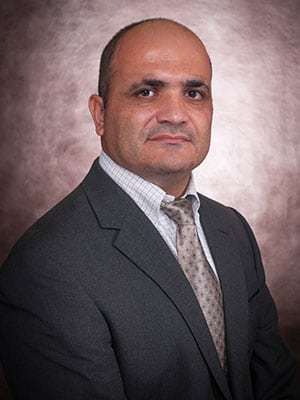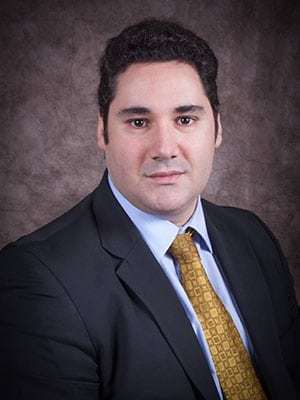Oil, Gas and Energy Engineering (PhD, 3 Years)
| Duration | 3 years |
| Qualification Awarded | Doctor of Philosophy in Oil, Gas and Energy Engineering |
| Level of Qualification | Doctorate Degree (3rd Cycle) |
| Language of Instruction | The research output and the PhD Thesis must be written in English |
| Mode of Study | Full-time and Part-time |
| Minimum ECTS Credits | 180 |
Request Information
Profile of the Programme
The doctorate degree is intended for students who have excelled during their undergraduate and/or graduate studies, have a strong motivation and enthusiasm toward technological research and innovation, and are inclined to remain in an academic or research environment working on emerging technologies and challenging engineering projects.
The School of Sciences and Engineering of the University of Nicosia is committed to provide PhD candidates with in-depth academic knowledge and hands-on experience on advanced engineering topics such as hydrocarbon geology, liquefied natural gas production, pipeline engineering, flow assurance, fracture mechanics, hydraulic fracturing, enhanced oil & gas recovery, CO2 capture and sequestration, and subsea engineering. The high-caliber academic staff of the programme in Oil, Gas and Energy Engineering is dedicated to work closely with students to tackle current engineering problems thereby generating new knowledge and results that can be published in reputable journals and conference proceedings.
During their studies, students will have the opportunity to work on funded research projects, co-author papers with their advisors and other class-mates, present their contributions at international conferences, participate in the write-up of research proposals, prepare scientific reports, use simulation software, perform laboratory experiments, attend training schools, participate in workshops, etc. The three-year experience gained during their PhD studies, working primarily on formulating and solving challenging engineering problems, will provide students with the necessary skills, tools and qualifications to excel in their field of expertise and secure a research/academic position at a university or college, a government institute, or high-tech company.
Career Prospects
Graduates with a PhD in Oil, Gas and Energy Engineering will be equipped with the necessary skills in order to enable them to secure a research/academic position at a university or college, a government institute, or high-tech company.
The PhD program requires the completion of 180 ECTS out of which 30 ECTS are allocated to the preparation of the research proposal and 150 ECTS are allocated to the research, write-up and defense of the Thesis.
In every year of study, the PhD student will have to register for 60 ECTS credits. Research work may include the preparation of a research proposal, presentation and defense of the research proposal, attendance of international conferences, preparation and submission of journal/conference papers, write-up of the PhD Thesis, and presentation and defense of the PhD Thesis.
The minimum number of years for completing the PhD is three (3) and the maximum number of years is eight (8).
The PhD program entails the following stages:
- Attendance of a number of graduate courses which the Departmental Graduate Studies Committee approves and considers necessary;
- Write-up and defense of the PhD proposal before the Supervisory Team;
- Research work by the PhD candidate under the guidance of the Advisor and the Supervisory Team;
- Write-up and submission of the Thesis;
- Defending the Thesis before the Examination Committee.
The PhD in Oil, Gas and Energy Engineering, in line with the general philosophy of awarding doctoral degrees, equips students with:
- Specialized and advanced scientific knowledge in the field of conventional and green energy sources;
- The ability to realize progress related to power generation, distribution and storage from renewable energy sources;
- Knowledge to optimize prevailing oil and gas exploration and production techniques;
- New methodologies and tools tailored towards innovative design, scientific progress, and technological revolution;
- Research skills and analytical thinking to effectively tackle fundamental and applied energy engineering problems;
- Extensive training and professional practice in their primary area of research interest;
- Skills to formulate technological solutions for lowering costs, overcoming technical challenges and minimizing environmental impact associated with energy processes;
- Competences related to substantial authority, innovation, autonomy, scholarly and professional integrity.
Holders of the PhD in Oil, Gas and Energy Engineering:
- Have a profound understanding of their research topic(s) and demonstrate advanced skills and research capabilities associated with their field(s) of expertise;
- Are able to expand the capabilities of a proven process, extend the lifetime of oil & gas fields, and lower environmental footprint of conventional O&G resources;
- Gain a deep appreciation of the merits and challenges associated with onshore & offshore wind energy, solar thermal, photovoltaics, geothermal, hydroelectric and nuclear energy sources;
- Have the ability to conceive, design, implement and adapt a process related to hydrocarbon’s upstream, midstream or downstream sectors;
- Have made a notable contribution through original research that extends the frontier of science through the development of a substantial body of work, some of which merits national or international refereed publication;
- Are capable of utilizing their creativity to tap and economically exploit renewable and conventional energy sources;
- Are able to promote technological, social or cultural advancement in a knowledge based society;
- Are able to work as part of a team in an academic and research environment promoting new ideas and emerging technologies.
| Course Code | Course Title | ECTS Credits |
|---|---|---|
| PHDF-100 | Doctoral Course – Fall semester | 30 |
| PHDS-100 | Doctoral Course – Spring semester | 30 |












